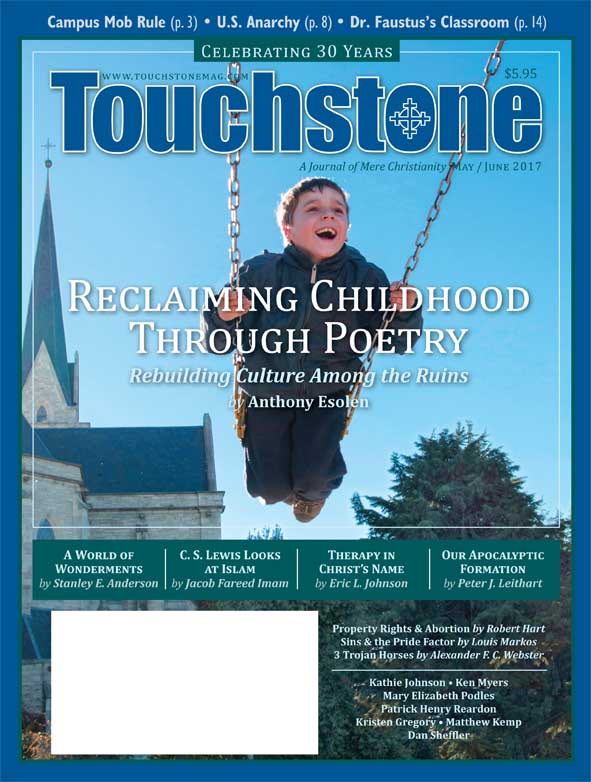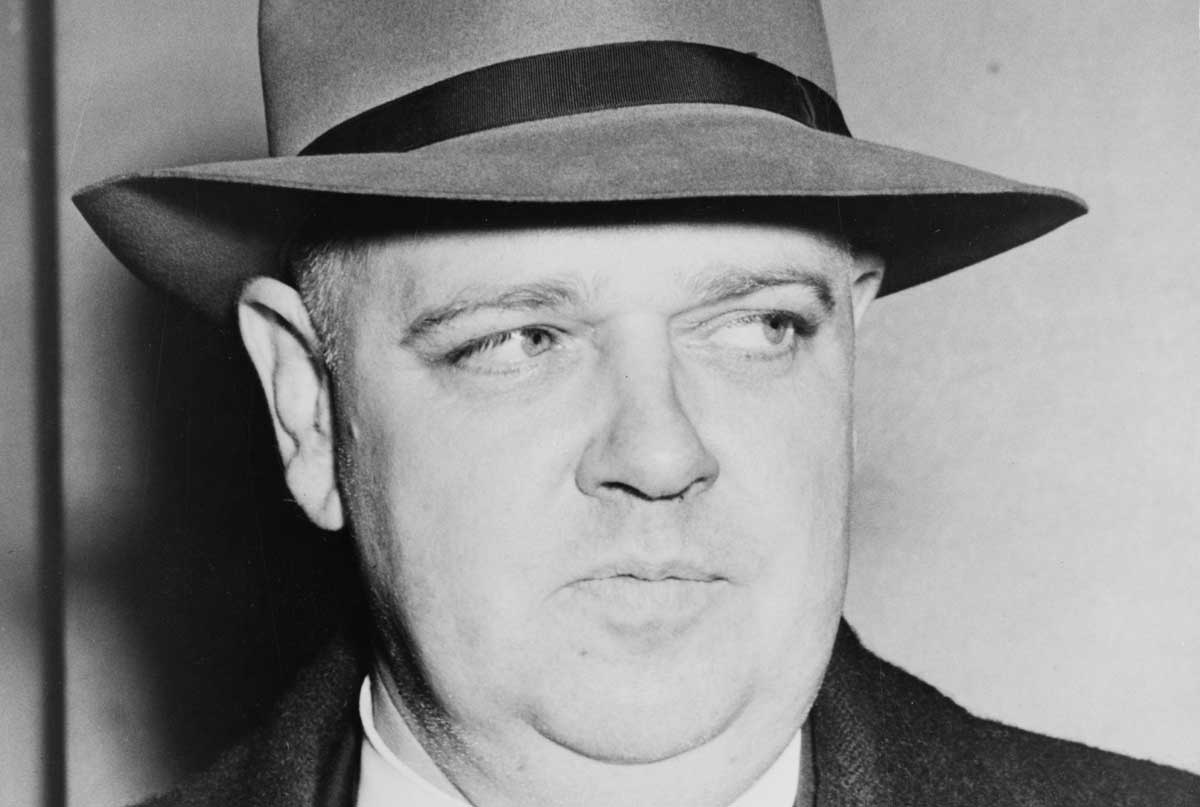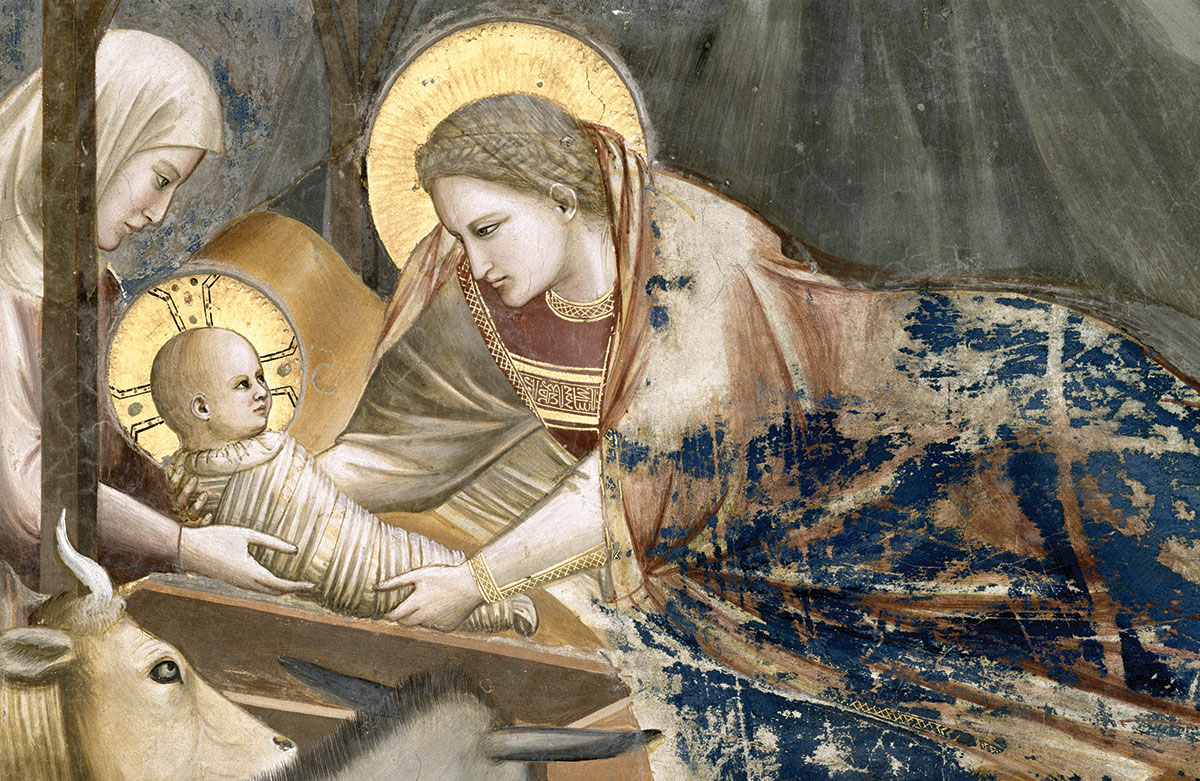Review
Therapy in Christ's Name
When Hearts Become Flame: An Eastern Orthodox Approach to the Dia-Logos of Pastoral Counseling (2nd ed.) by Stephen Muse
Many Christians are suspicious of psychotherapy in any form, and for good reason. We live in a time when a secular therapeutic orientation has replaced religion as the pathway to wellbeing, at least among Western intellectuals, and increasingly across the populace. Its agenda promotes an enlightened narcissism shorn of blatant self-destructiveness, embraces expressive individualism as its summum bonum, and contributes to a victim mentality that absolves people of responsibility for their actions. It has even crept into the Church, evidenced by the faith of some Christian young people, termed "moralistic therapeutic deism," in which God is seen as little more than an unconditionally accepting caregiver.
However, a wholesale rejection of therapy would be a tragic overreaction to this state of affairs, for Christianity is intrinsically a therapeutic religion. The authors of the Gospels understood Jesus' healing of people's diseases and disorders to be pictures of the spiritual healing he primarily came to this world to give (Mark 2; John 9; 11:25; see 11:40; 17:22–26). Among its manifold implications, Christian salvation includes a process of spiritual and psychological healing and transformation (Matt. 1:21; Luke 17:16; Rom 12:2; 1 Cor. 1:18; 15:2; 2 Cor. 3:18). The root meaning of psychotherapy is soul-healing (psyche = soul; therapeuō = to heal), which actually makes more sense in a worldview where humans are souls as well as bodies, than it does in naturalism. Rightly understood, Christianity offers a theocentric psychotherapeutic framework, established by the triune God, that grounds human flourishing in the manifestation of God's glory, especially displayed in human development, healing, and transformation in Christ. The problem is not therapy per se, but the therapy framework that remains after God has been vanquished, in which the object of God's therapeutic intentions, the human self, has usurped the divine throne.
But this assessment has an addendum. The Christian counseling community has, so far, done little to develop its own therapeutic resources—provided by God, revealed in the Bible, and elaborated in the Christian traditions—into models of therapy that are as sophisticated and well-investigated as those of modernity, preferring, for the most part, simply to plunder the secular sources. To be clear, plundering done well is a service to the church. But what prevents the Christian counseling community from also developing distinctly Christian models of therapy, based fundamentally on its own resources? When Hearts Become Flame (St. Tikhon's Monastery Press, 2015) both plunders and develops, from an Eastern Orthodox perspective, illustrating that the Christian traditions have sufficient resources to construct their own approaches to Christian therapy.
Being relatively unfamiliar with Orthodox thought and practice, I am not the one to judge how well the author reflects this tradition. But I can say that, by Evangelical standards, the concentration of distinctly Christian content in this book is remarkably high, matched only by biblical counselors (such as Kellemen, Gospel-Centered Counseling, Lambert, A Theology of Biblical Counseling, Powlison, Seeing with New Eyes, and Welch, When People Are Big and God is Small), and a few others (such as Anderson, Zuehlke, and Zuehlke, Christ-Centered Therapy, Payne, The Healing Presence, Crabb, 66 Love Letters, and Coe and Hall, Psychology in the Spirit).None of these, however, address the human-to-human therapeutic process in the same depth as Muse does. Could that strength be related to its Eastern Orthodox moorings? What follows is a summary of what for me are the book's major contributions, concluding with some questions about the model and its tradition.
The Dia-Logos
At the core of Muse's model of therapy is a radical openness to the other, centered in the therapeutic conversation, which he calls dia-Logos, where "God appears in-between, making it a trialogue" between God in Christ, the counselor, and the counselee. He considers this conversation to be the essence of authentic pastoral counseling (27). Dia-Logos is a process of healing communication that goes beyond merely human intersubjectivity, because it mediates the love of Christ (53, 167), who "stands between the self and other as well as constituting the ground of being that unites the two in one embrace which allows for separate persons to be in dialogue" (21).
The uniquely Eastern Orthodox contribution to pastoral counseling, he says, is the importance placed on the role of the therapist's formation through the "dia-Logos of worship, prayer, and the ascetical life that sees the aim of learning to love through the acquisition of the Holy Spirit" (150). Indeed, for Muse, "one enters into therapeutic alliance with another person as one enters into prayer itself" (21). Referring to a saying of St. Silouan, he writes, "the theologian is one who has become prayer itself by loving as Christ loves" (150). The Orthodox therapist, according to Muse, is one who practices dia-Logos both in prayer with God and in counseling, together with Christ, the counselee.
Dia-Logos, then, serves as the unifying theme of this set of essays. Muse irenically walks us through various aspects of pastoral counseling, including: the interpersonal encounter, the importance of the personal maturity of the pastoral counselor, the supervision and training of such counselors, and help for clergy who are in vocational crisis and experiencing burnout (making this book a worthy gift to a struggling minister). The book concludes with a discussion of what Muse calls "post-traumatic spiritual disorder," a spiritual malaise that afflicts Western culture, in which he shows how interpersonal, intra-psychic, and social-systemic problems are closely interrelated, and how their remedy is the same, since it is found in Christ.
As with most collections of essays, there is some repetition, although many of the principles Muse advocates bear repeating. The project as a whole defies pigeon-holing: it is theologically conservative but socially liberal, liturgical and charismatic, therapeutic and Trinitarian, approving of certain Jewish and secular sources but thoroughly committed to Eastern Orthodox Christianity. In other words, it is one-of-a-kind; and it is good.
Orthodox Clinical Wisdom
I would like to focus on what I think is the book's greatest contribution: its advanced therapeutic understanding. Before I do, a caution to the reader may be in order. One problem lay people and counseling novices have in evaluating therapy (and therapy books) is that they believe they are already pretty good counselors and know a lot about how to give therapeutic aid—after all, "I have helped this person and that person," and "People just seem to come to me for advice." Now there is truth in the idea that most anyone can help most anyone else, in some degree, just by listening. In fact, training average Christians how to help others with their everyday struggles ought to be an ongoing goal of every decent-sized church, and something akin to this insight became integral to the Reformation under the banner of the priesthood of all believers.
But this otherwise laudable goal can be misunderstood to communicate that every member is already as competent as every other, discrediting the notion of expertise and the value of greater training and experience. But in therapy, as in any human activity, the guidance of the more experienced can enhance the understanding and ability of the less so. This needs to be said, I think, because some of the things Muse says might be viewed skeptically by relatively inexperienced counselors, while Muse is clearly an expert therapist.
Here I quote in italics a number of his insights into the therapeutic process, commenting where necessary.
• "In the beginning [of our counseling career], we walk into the house of people's souls as anxious repair persons feeling the pressure of a positive outcome on our shoulders rather than as privileged guests, mindful of the presence of the Unseen Guest in our midst. Our minds are too busy with theories, diagnoses, and anxiety-driven self-doubts to notice the subtle states of breath, sensation, movement and feeling in oneself and in the other that mark the changing of the relationship and the emergence of new meaning" (xix). An analogous development occurs in the career of a physician: early on, one's diagnosis is guided by a formal, if-then decision chart and recently acquired knowledge, but after years of practice, when one has become a seasoned medical doctor, one's diagnosis is guided more by intuition and wisdom. This kind of sequence also occurs in the development of therapists.
• "Attention is something I am responsible for; grace and faith are God's gifts" (107). Some have suggested that attention is the most important capacity humans have, because with it we can focus our conscious awareness on what gives life and avoid focusing on what destroys. It is, moreover, something we have more direct control over than our emotions, our desires, or even our thoughts. But we might add that even our ability to attend is a gift of God, and focusing on the best things requires God's grace.
• "If you listen from the heart, people are more likely to hear their own hearts speaking" (82). "The proper place of the mind is in the heart" (136). "Full human development requires continual repentance and striving in prayer to 'bring the mind down into the heart.' We might say, 'When the therapist is present from the heart the client is more likely to respond from the heart.' Depth calls to depth" (181). Muse considers himself an exponent of Eastern Orthodox existentialism (153; 175ff); we could also call him a psycho-spiritual cardiologist. He is skeptical of cognitive therapy—and for that matter, a merely mental Christianity that assumes that knowledge alone can heal the soul. He recognizes that skillful therapy accomplishes something that mere education can never do—it connects people to the reality of what's going on in their hearts.
• "Persons who do not feel safe to become a question for themselves repeatedly will experience little or no growth and can prove a danger to their clients in the future" (156; emphasis his). Those who are convinced they already have all the answers about themselves (and others) have nothing new to learn. Therefore, they will not grow in their hearts, and they cannot model for others the curiosity necessary for self-exploration.
• "We need to be passion-bearing in session, rather than passion-avoiding" (64). Many contemporary models of therapy advocate the value of experiencing one's negative emotions, rather than maintaining one's defenses against them. Therapists assist in this process by bearing (or containing) the negative emotions of their clients, rather than collaborating in their resistance by not noticing or addressing them.
• "If you have not been changed by your relationship with your client, then you have not met the person yet" (46). "We need to be changed every time we meet someone" (53). Good therapy entails an openness to mutual growth that greater expertise does not undermine but creates. Every interaction between humans is an opportunity to develop; skillful therapists have the increasing ability to learn about themselves in session. This gift, in part, is what they indirectly pass on to their counselees.
• "Speak so that your body will confirm the truth of your words" (134, 162). Listen to your body (135). A decision or cognition needs to be confirmed by the body (156). Many readers, particularly those prone to intellectualism (like me), will be wary of this focus on the body. But the Church has long recognized that humans were created in a profound body/soul unity. The universe is endowed with meaning. What if God designed the human body to automatically register, store, and express in the brain, nervous system, muscles, and other bodily systems the meaning that is being experienced and processed consciously (to some extent) by the soul? Think for a moment about what happens in your body when you are anxious. As we learn to pay attention to the signals our body gives us, we discover a mode of communication that our created nature is always expressing. But learning to interpret the information skillfully takes training, practice, and discernment.
• Muse also shares many distinctly theistic and Christian therapeutic insights. For example, we receive "our value, not from our own hand, but from the gift of God's love" (177). He assumes a theocentric orientation to human life and therapy, in contrast to the anthropocentric orientation of contemporary culture and its therapy.
• "The work of caring for others is a kind of spiritual formation process, which when undergirded by the ancient Orthodox path of faith and worship—which includes neptic [alert] awareness, inner prayer, fasting, almsgiving, confession, fellowship and loving service to others in the world—creates optimal conditions for human growth and well-being" (xxvi-xxvii). A good therapist is a kind of relational sage, and every complex worldview community has its own formation process for becoming a sage. Becoming a good Christian therapist entails practicing the Christian spiritual disciplines that draw us into the holy love of God and facilitate the appropriation of his values. According to Muse, prayer is of paramount importance to Christian formative practice for therapy (120).
Additional Insights
Muse suggests that all therapy relationships should resemble the Trinity, characterized by "hierarchical order and differentiation of persons, while still being equal among all its members." In therapy supervision, this means the supervisor has a legitimate authority in the relationship (analogous to the Father), but is fundamentally equal with the supervisee as a co-pilgrim on the journey, experienced "from the unique vantage points of our respective personhood" (161). Therapy and therapy supervision, then, are a picture of the Trinity.
Christian therapists should continually ask themselves in session (167), "Who is in the room?" (reminding them that therapy is a trialogue), and "What question is your client asking Jesus?" This question frames the client's dilemmas in terms of a personal engagement with Christ and sets up the session as a search for Christ's answer.
Almost in passing, Muse points to three significant processes for pastoral counselors: (1) becoming compassionately oriented towards the other; (2) learning to identify "therapeutic aggression" (which is most dangerous for those who are least aware of it) and the presence of one's own anxiety, both of which stifle genuine dialogue; and (3) becoming aware of functional atheism through reliance on one's own skill and technique (167–168).
In contrast to Descartes' maxim, "I think; therefore I am," Muse suggests that the maxim at the basis of Eastern Orthodoxy is, "I am loved into learning to love; therefore I am" (153). This has many implications. Without love in childhood, adults will struggle to love others, and they will feel less sure of themselves. A second maxim is, "The most important preparation for doing the work of pastoral counseling is being loved" (82). A third is that the goal of therapy is to love counselees well, for by this means, their capacity to love others is most likely to be enhanced and they are most likely to become more truly themselves. However, only in a Christian trialogical framework, particularly when both counselor and counselee are Christian, is that maxim best realized, because only the infinite triune God has the inexhaustible capacity to love both counselor and counselee well enough to undermine their fallen resistance to love, enabling them better to participate in God's restorative intentions for both of them. Only in that way can they become most truly themselves.
There are many other topics in the book worthy of our attention; for example, the different classes of psycho-spiritual problems (abstraction, distraction, extraction; 60–64), the clergy burnout cycle (194–195), and the four sources of psycho-spiritual difficulties (fallen passions, disordered psychological patterns, systemic forces, and demonic forces; 196–203). But we have seen enough to obtain an overview of this unique and deeply Christian model of therapy by a very skilled Eastern Orthodox therapist. We finish with some thoughts that arose as I read the book from my neck of the Christian woods.
What Sin Hath Wrought
According to a Reformational reading of the biblical metanarrative, we were created for God and owe him absolute devotion. As our Creator and infinitely the most beautiful being there is, it is fitting that he be the center of our life and affections. The greatest obstacle to this calling and to our psycho-spiritual wholeness is sin and its effects, and those effects include objective shame and guilt that accords with God's perfect appraisal. Shame and guilt feelings are supposed to correspond to their objective correlates before God, but one of sin's other effects is a disordered heart, so that sin and the feeling of sinfulness do not necessarily correspond accurately.
Complicating matters even further, shame feelings are especially problematic because they tend to lead humans to hide (Gen 3:8), and hiding (from God, others, and oneself) directly opposes the healing process. So Reformational therapists are faced with a significant paradox: according to the Bible, sin is the worst form of psychopathology (soul-disorder)—driving us away from our Creator, Healer (Ex. 15:26), and Physician (Mark 2:17), and our ultimate wellbeing—yet the more that sin and its shame are highlighted and recognized, the more we are driven into hiding (usually by burying such knowledge in our unconscious), thus making it harder to undermine its power and effects. Contributing to the problem, humans grow up in families that have developed direct and indirect ways to promote shame, sometimes to dangerous and damaging levels, which contributes significantly to other forms of psychopathology (see Price and Dearing, Shame and Guilt, 2002).
Modern secular psychotherapists have it easy. The shame feelings of sin are rationalized away as the result of poor socialization, or perhaps as social norms that evolved to build solidarity. Either way, shame isn't regarded as real. It doesn't correspond to an actual ethico-spiritual deficit in one's nature or actions. The Bible, however, reveals that the deficit is real. In fact, it teaches that we hardly appreciate just how deficient we are. (Consider the amount of teaching on this in the prophets alone!) As negative as this sounds, the strangely curative note it contains is its validation and confirmation of what the human conscience already knows (Rom. 2:14–15). In addition, the Bible teaches that humans were created very good (Gen. 1:31), and although that goodness is corrupted by sin, it is not destroyed, thus limiting sin and its effects in this life.
The Bible's main theme, however, is that a radical therapeutic solution has been provided by the triune God, who has made our recovery from sin and its effects (both objective and subjective) critical to his own tri-personal mission to manifest and share his glory, concentrated in the story of Christ's incarnation, crucifixion, resurrection, and ascension. Those who embrace by faith the glory revealed in the gospel of Christ are united to him forever and are given the gift of eternal life, and all the rights and privileges pertaining thereto, including righteousness, holiness, redemption (1 Cor. 1:30), adoption (Rom. 8:17), belovedness (Col. 3:12), an imperishable inheritance (1 Pet. 1:4), and the gift of the Holy Spirit (Gal. 4:6).
We have seen that Muse's model of therapy has many strengths. What limitations might there be from a Reformational perspective? More attention could have been paid to God's holiness, righteousness, and majesty, along with Muse's pervasive emphasis on love. Also, the role of divine law and obedience in soul-healing could have been more prominent. Obeying God is good for the soul (a theme evident, it so happens, throughout the Philokalia).
While Muse addresses sin a great deal, much of the attention is directed at sin's subjective and social effects. His analysis of these effects is profound. But attending to the divine offense of sin, as the Reformational paradigm does, "grounds" our core psychopathology in the transcendent order, promoting the realization of the need for a transcendent resolution, which God has provided in Christ's redemption, the most fitting and adequate therapeutic intervention there is. Of course there are many lesser forms of bio-psycho-social pathology that also deserve our therapeutic attention, but because they are all more or less related to our primordial/"hereditary" ethico-spiritual disorder, Christ's redemption touches all of them (we might say these are "top-down" effects of Christian salvation).
The Converted & Unconverted
Muse gave little attention to the transition in the lives of believers from wrath to belovedness (Eph. 1:7; 2:1–10), from death to life (Rom. 6:1–11), and from the world to the new creation. And little emphasis was put on Paul's doctrine of a special union with Christ that only believers have yet availed themselves of. This union provides the divine ground, not of everyone's being, but of the transformation of anyone who believes. It is the transcendent basis of a "new creation" identity, which gets gradually and more deeply appropriated during the therapeutic journey called the Christian life (a process the Eastern Orthodox tradition calls theosis (150), but that is a discussion for another time). So I wonder if Muse believes that Christians and non-Christians have essentially the same standing with respect to God in Christ, such that any differences between these two groups must be due to human efforts to appropriate salvation, assisted by grace to be sure, but perhaps resembling what Western Christians have called semi-Pelagianism and reflecting an inclusivist approach to salvation.
I further wondered about Muse's repeated apophatic emphasis on the mystery of the Christian faith as well as the therapeutic process, and on the virtue of "not-knowing" (53, 167, 178ff). There seemed also to be a general suspicion of the intellect (77, 127–128). At one point, with regard to the trialogue, Muse says,
As a therapist, I am trusting God, the client, and my own being to be engaged in a single act of listening together until there is a kind of epiphany or theophany of "Christ in our midst" Who appears always at the mysterious intersection between I and other so that there is a perfect fit that proves transformative in linking our ordinary world with an invisible one that witnesses the Holy Spirit's activity in the heart. (128)
Elsewhere he writes that the therapy encounter is a "co-pilgrimage in which both are changed by the encounter with the Lord Who appears in our midst, whether recognized or not, whenever we love one another in this way" (46). Are we to understand that Christ is in the midst of therapy in the same way,whether or not the client is a Christian? Jesus' statement that he is in the midst of two or three gathered in his name was uttered in the context of church life, where two disciples agree on earth about anything they ask in prayer (Matt. 18:18–19). All therapy conducted by Christians can be considered Christian in some sense, so long as the therapist practices "in Christ's name," as Muse clearly does. But surely Christian pastoral counseling is more fully realized when the name of Jesus is public and explicit and when both counselor and counselee agree prayerfully about him.
So a Reformational approach to counseling would seem to place a greater emphasis on the rights of believers to claim the spiritual blessings laid up for them in Christ as a result of their union with him (Eph. 1:3), requiring greater attention to whether or not a client claims to be a believer. This would seem to lead, in turn, to a distinction between what Reformational therapists might call "common grace therapy" and "redemptive grace therapy." If the therapist is a Christian, both types can be conducted in Christ's name. But while the former can be practiced with anyone—Christian or not—using the resources of God's common grace, that is, his goodness towards all humanity, available to everyone (Ps. 104, Is. 28:23–29, Matt. 5:45, John 1:9, Acts 14:17), the latter can be practiced in its fullness only with Christian clients, for it utilizes the therapeutic resources that Christ purchased for all in his work of redemption, but that are available only to those who believe (Rom. 8: 1–39, 1 Cor. 6:11, Eph. 2:4–10).
Both flow from what the Eastern Orthodox tradition calls uncreated divine energies (126). But if I am interpreting Muse correctly, his dia-Logos model of therapy relies mostly on common grace, which Christian therapists are free to use with anyone and everyone. But what about when they are working with followers of Christ? Might they then also regularly dip into those treasures of redemptive grace that have been laid up in heaven for believers, upon which they are to set their minds for comfort, recovery, and power (Matt. 6:19–21, Eph. 1:3, Col. 3:1–4)? If not, I think we minimize the gift of salvation and reduce the effectiveness of our therapy with Christians.
Let us conclude, however, by returning to an earlier point, that the felt shame of sin causes people to hide. How should Christian therapists, whether Orthodox or Reformational (or Catholic, for that matter), address the problem? Here I think the dia-Logos model might prove helpful, especially to Reformational types like me. The negative emotion of shame is ubiquitous, though greater in some than in others, and it signals a negative relationship with God, self, and others. Simply teaching biblical truth—even the gospel—without love will most likely only activate our sin (Rom. 7:5, 8–21) and cause us to hide more skillfully behind our (self-righteous) truth. A more powerful way to undermine shame—ideally, along with the gospel—is to love people well. By this means, we also signify the love of God offered in Christ to everyone.
With regard to love, I think we heirs of the Reformation may have something to learn from our Orthodox (and Catholic) siblings. May God grant us all more knowledge of him and more love of him, two of the main pillars of therapy done in the name of Christ.
subscription options
Order
Print/Online Subscription

Get six issues (one year) of Touchstone PLUS full online access including pdf downloads for only $39.95. That's only $3.34 per month!
Order
Online Only
Subscription

Get a one-year full-access subscription to the Touchstone online archives for only $19.95. That's only $1.66 per month!
bulk subscriptions
Order Touchstone subscriptions in bulk and save $10 per sub! Each subscription includes 6 issues of Touchstone plus full online access to touchstonemag.com—including archives, videos, and pdf downloads of recent issues for only $29.95 each! Great for churches or study groups.
Transactions will be processed on a secure server.
more on medicine from the online archives
more from the online archives
calling all readers
Please Donate
"There are magazines worth reading but few worth saving . . . Touchstone is just such a magazine."
—Alice von Hildebrand
"Here we do not concede one square millimeter of territory to falsehood, folly, contemporary sentimentality, or fashion. We speak the truth, and let God be our judge. . . . Touchstone is the one committedly Christian conservative journal."
—Anthony Esolen, Touchstone senior editor











